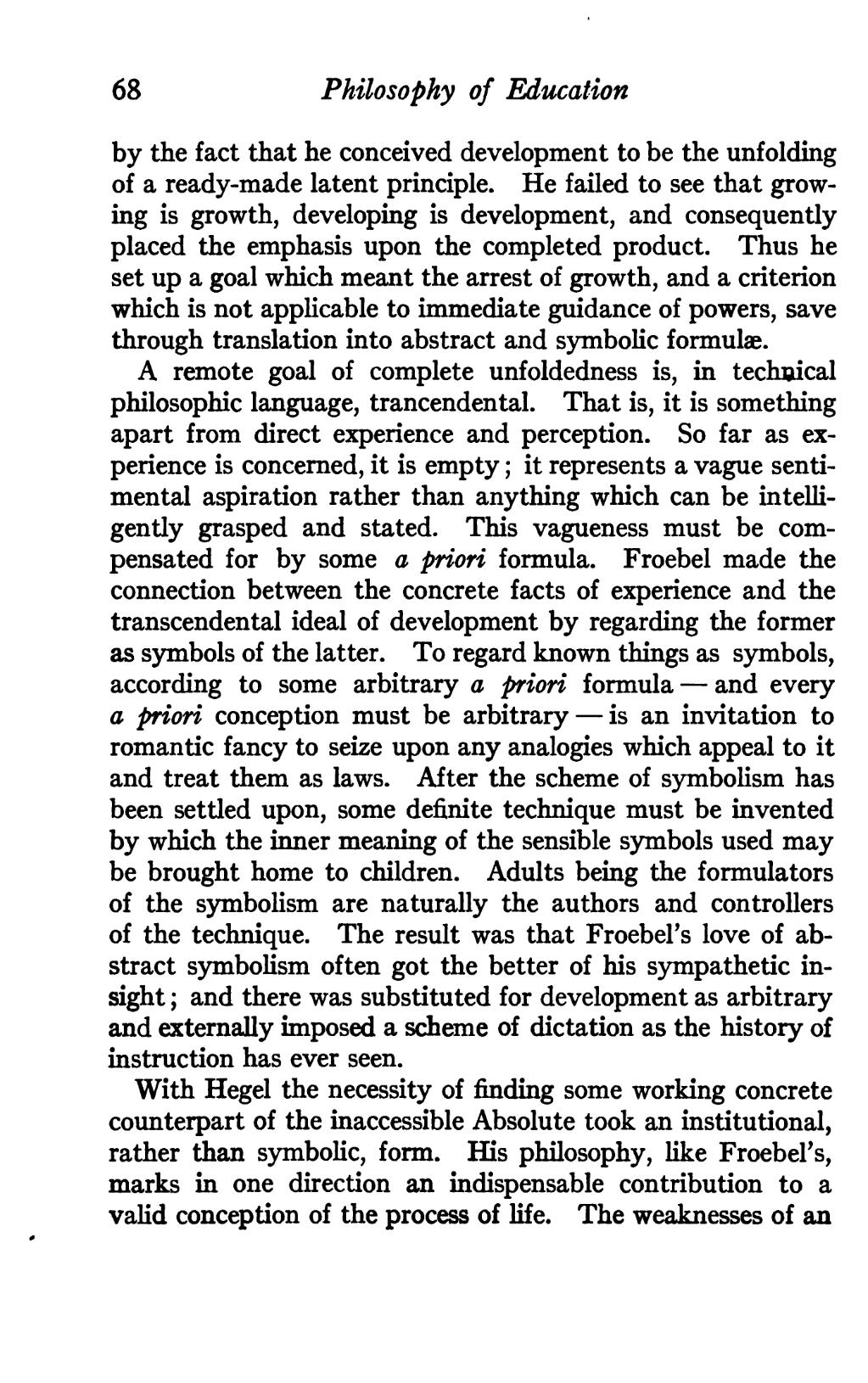by the fact that he conceived development to be the unfolding of a ready-made latent principle. He failed to see that growing is growth, developing is development, and consequently placed the emphasis upon the completed product. Thus he set up a goal which meant the arrest of growth, and a criterion which is not applicable to immediate guidance of powers, save through translation into abstract and symbolic formulæ.
A remote goal of complete unfoldedness is, in technical philosophic language, trancendental. That is, it is something apart from direct experience and perception. So far as experience is concerned, it is empty; it represents a vague sentimental aspiration rather than anything which can be intelligently grasped and stated. This vagueness must be compensated for by some a priori formula. Froebel made the connection between the concrete facts of experience and the transcendental ideal of development by regarding the former as symbols of the latter. To regard known things as symbols, according to some arbitrary a priori formula—and every a priori conception must be arbitrary—is an invitation to romantic fancy to seize upon any analogies which appeal to it and treat them as laws. After the scheme of symbolism has been settled upon, some definite technique must be invented by which the inner meaning of the sensible symbols used may be brought home to children. Adults being the formulators of the symbolism are naturally the authors and controllers of the technique. The result was that Froebel's love of abstract symbolism often got the better of his sympathetic insight; and there was substituted for development as arbitrary and externally imposed a scheme of dictation as the history of instruction has ever seen.
With Hegel the necessity of finding some working concrete counterpart of the inaccessible Absolute took an institutional, rather than symbolic, form. His philosophy, like Froebel's, marks in one direction an indispensable contribution to a valid conception of the process of life. The weaknesses of an
